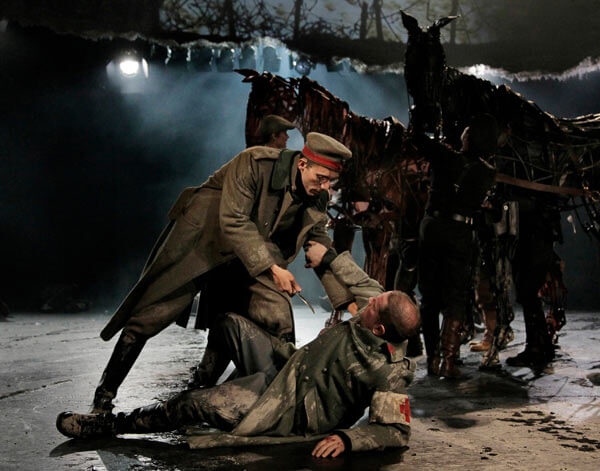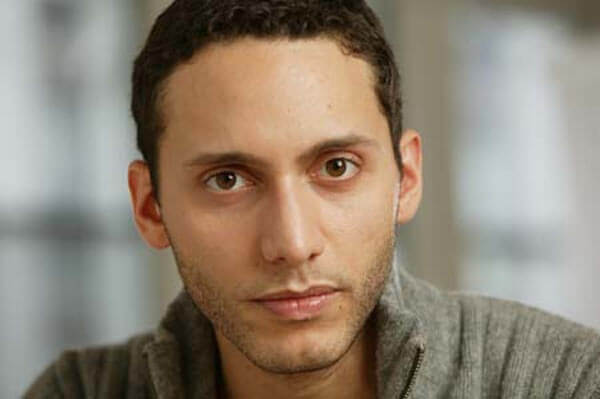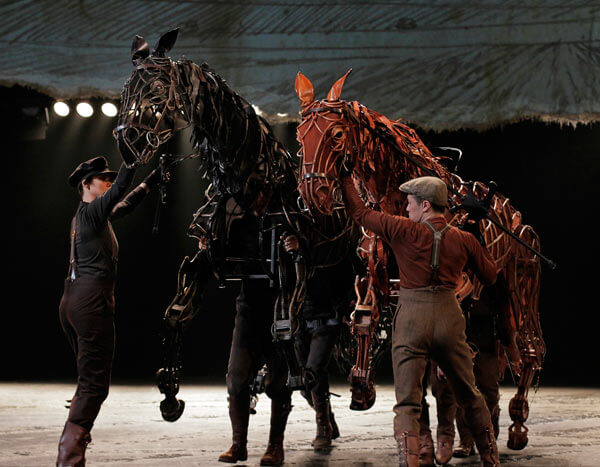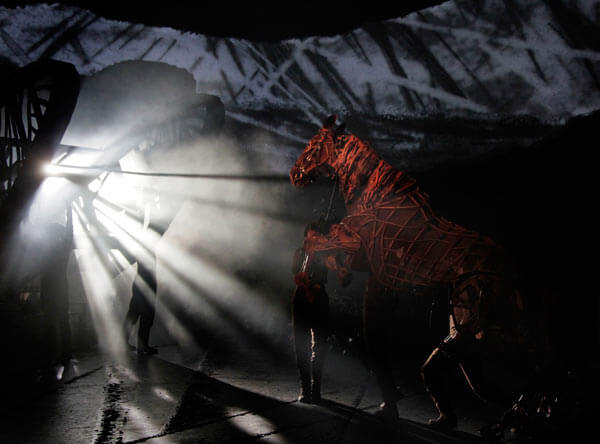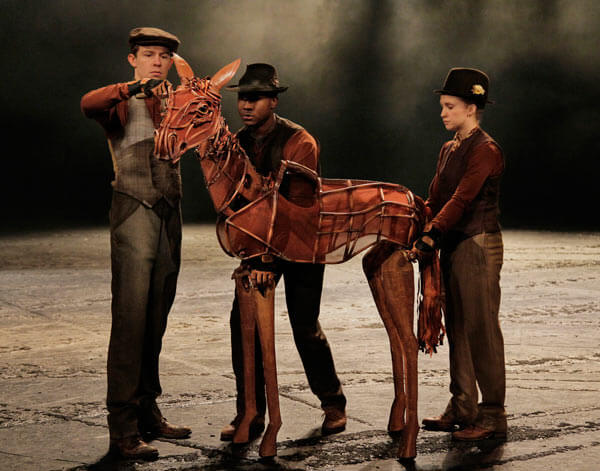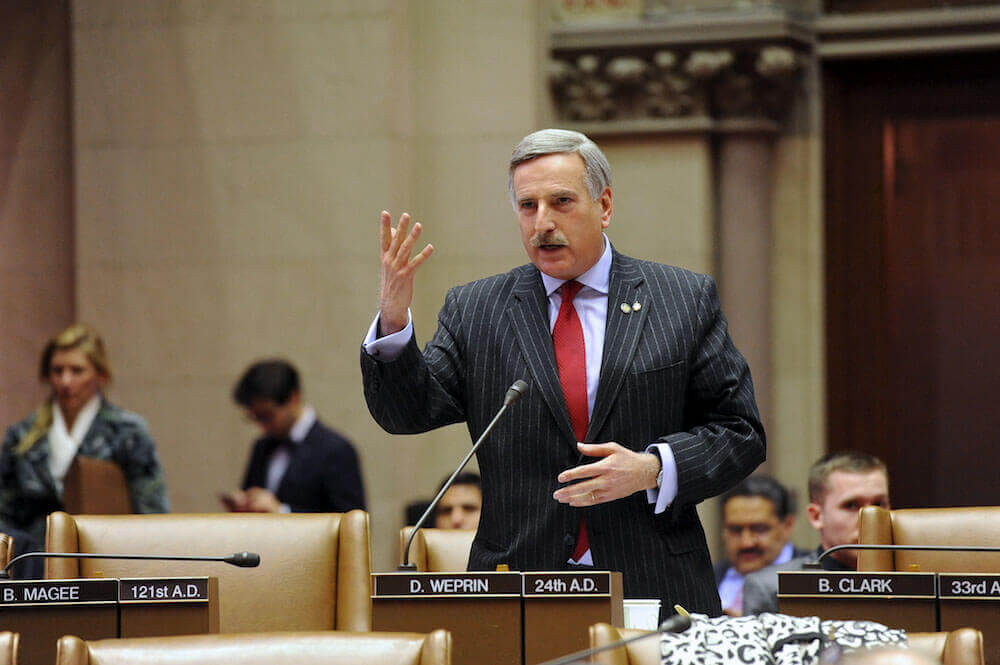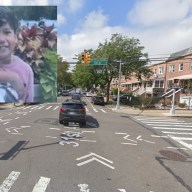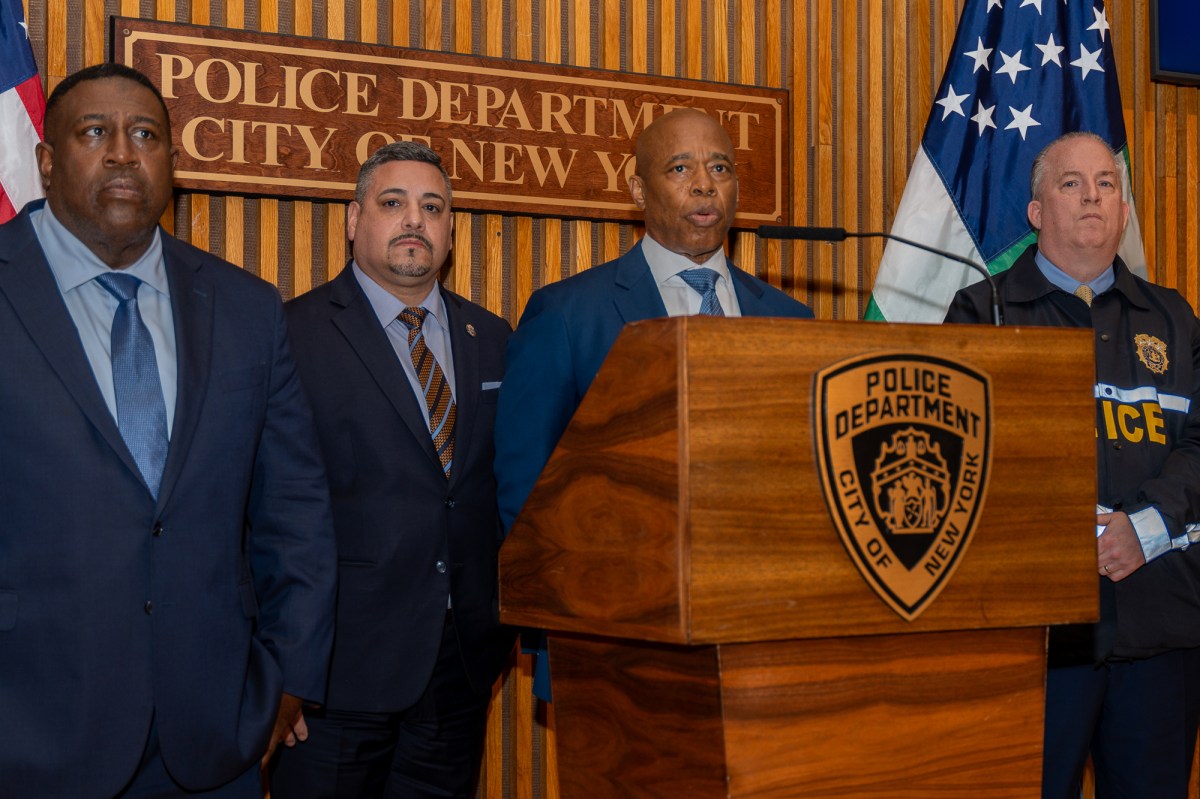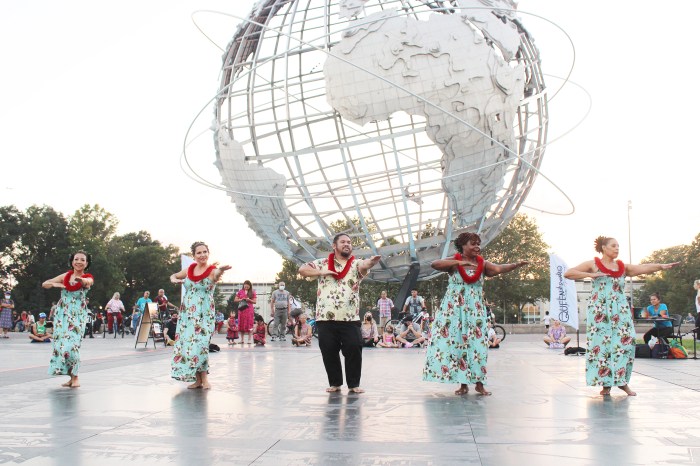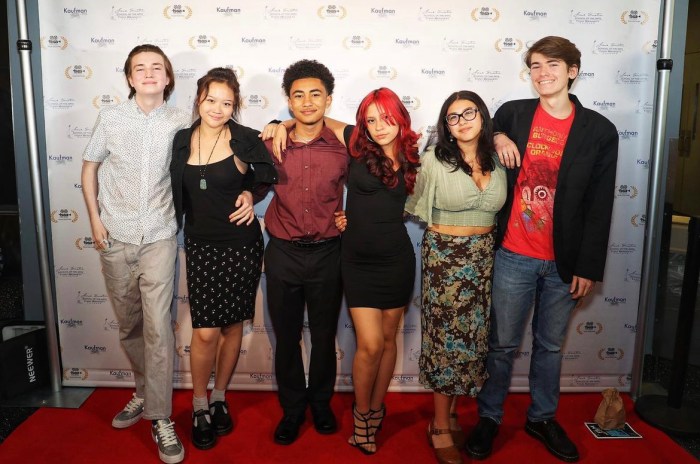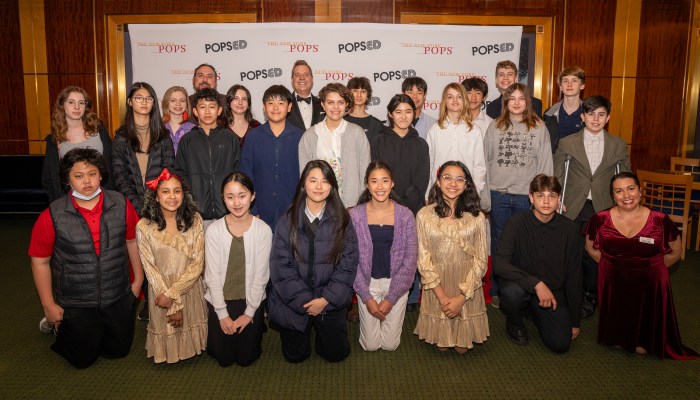By Raphael Sugarman
One of the many unique aspects of Lincoln Center’s production of “War Horse” is the number of actors in its rather sizable cast who play more than one role.
This includes the actors who play Joey, the puppet-filly who has taken Broadway’s breath away, since the play debuted at the Vivian Beaumont Theatre on March 15, 2011.
More remarkably, perhaps, is that some actors in the production are required to divide their efforts playing members of hostile nations — British townsfolk, German soldiers and French farmers.
Set in World War I, during which a staggering 35 million people and 8 million horses were killed, “War Horse” requires its cast to translate the pain of each.
“War Horse” is, in other words, a story about empathy.
It is difficult to imagine that anyone understands this better than Astoria resident Elliot Villar, who plays Mr. Allan, a fixture in the British county of Devon in the play’s first act, and in act two, Suldate Klausen, a psychologically complex German soldier on whose back rests the play’s final moral epiphany.
“Even though he can look mean at first, he is really just as scared as anyone else,” said Villar.
Drafting Joey
The London and New York productions of “War Horse” are based on a novel of the same name by highly regarded children’s writer Michael Morpurgo.
Outlined in the broadest strokes, the book and plays tell the story of Joey, a regal thoroughbred, and Albert Narracott, the Devon boy who becomes enamored of the foal as they both begin to mature.
When Albert’s father Ted purchases Joey at an auction, his wife Rose is furious, insisting that the struggling family needs a plough horse instead to help it survive. Her worst fears are confirmed when the Narracotts are forced to sell Joey to Captain Nicholls, a young officer in the British cavalry.
World War I soon breaks out and both captain and colt are deployed to France. Nicholls is soon killed by machine gun fire and Joey and the other horses are captured by the Germans, who put them to work pulling heavy artillery and ambulance wagons.
This is particularly excruciating work for Joey and his pal Topthorn, a fellow thoroughbred, built for speed rather than strength.
Miraculously, though, both horses survive year after year during the war through good fortune and the kindheartedness of certain civilians and soldiers.
At first, Suldate Klausen is not one of these softhearted soldiers.
“You’re weak, you think they are like humans,” Klausen berates another German officer, who is feeling pity over the death of a horse. “But they aren’t human, they’re beasts, here only to carry us or to pull us.”
But even the emotions of the seemingly impenetrable Klausen ultimately evolve, when he discovers that a familiar horse has died of exhaustion. “Damn this bloody war,” he bellows, no longer able to discern between beast and the beastliness of war.
Personal Role
Villar said that in his performance as Klausen, he is trying “to show the character’s commanding presence, but also his vulnerability.”.
“Every night when I play Klausen, I try and humanize him,” the actor said.
Villar said his empathetic approach is largely a product of his training and family background.
Born and raised in New York City, he became interested in performance at an early age. He attended the Ethical Culture Fieldston School in the Bronx on a high school scholarship and later graduated with a bachelor’s degree in drama from Vassar College.
Villar was selected for a one-year fellowship at the prestigious Shakespeare Theater Company of Washington, D.C. He worked in New York as an actor for a year, before being accepted to Yale University’s School of Drama, where he earned a master’s degree, specializing in performance. He credited the experiences for giving him the skills to illustrate the emotional dualities of a character like Klausen on stage as well as to pick up on the subtle nuances of his fellow actors.
“We all take a tremendous amount of care every performance watching and listening to each other,” said Villar. “It’s the best way to keep the show alive, because the characters can never become stale.”
Villar’s biggest connection to “War Horse” however, is personal. His father, Carmelo, served in Vietnam as a paratrooper and combat medic in the U.S. Army’s 173rd Airborne Battalion.
“He watched men die, he was there to witness their last words,” said Villar.
Carmelo Villar was very moved to see his son’s performance in “War Horse,” the actor said, adding, “and it meant just as much for me to know he was out there.”
The actors in “War Horse,” use artfully designed costumes and perfectly honed gestures and vocal pitch to mimic the outside appearance of a horse.
The play’s biggest success, however, is allowing the audience to empathize with the inner worlds of both the horses and humans.
“What really resonates with me is the universal experience of war,” said Villar. “No matter what side you’re on, all you’re really trying to do is get you and your buddies back alive.”
“War Horse” is playing at the Vivian Beaumont Theater, 150 W. 65th St. in Manhattan.

